Zimny talks about how the filmmaking process works when Bruce Friggin' Springsteen is your creative partner.
I know a lot of what Bruce and the band does gets recorded these days.
Thom, you’ve been involved with a lot ofother filmed E Street Band projects.
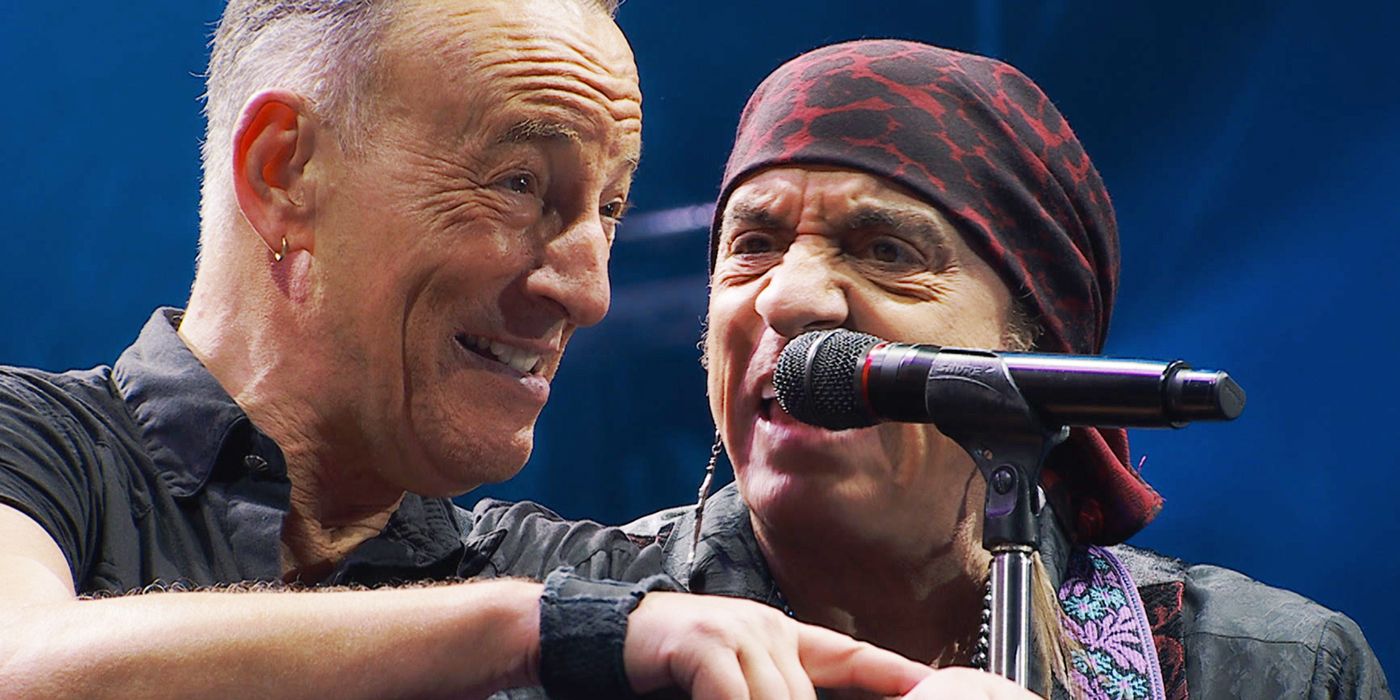
Image via Hulu
What was important to show in this film that maybe fans haven’t gotten to see before?
So you have that element.
I wanted that history presented.
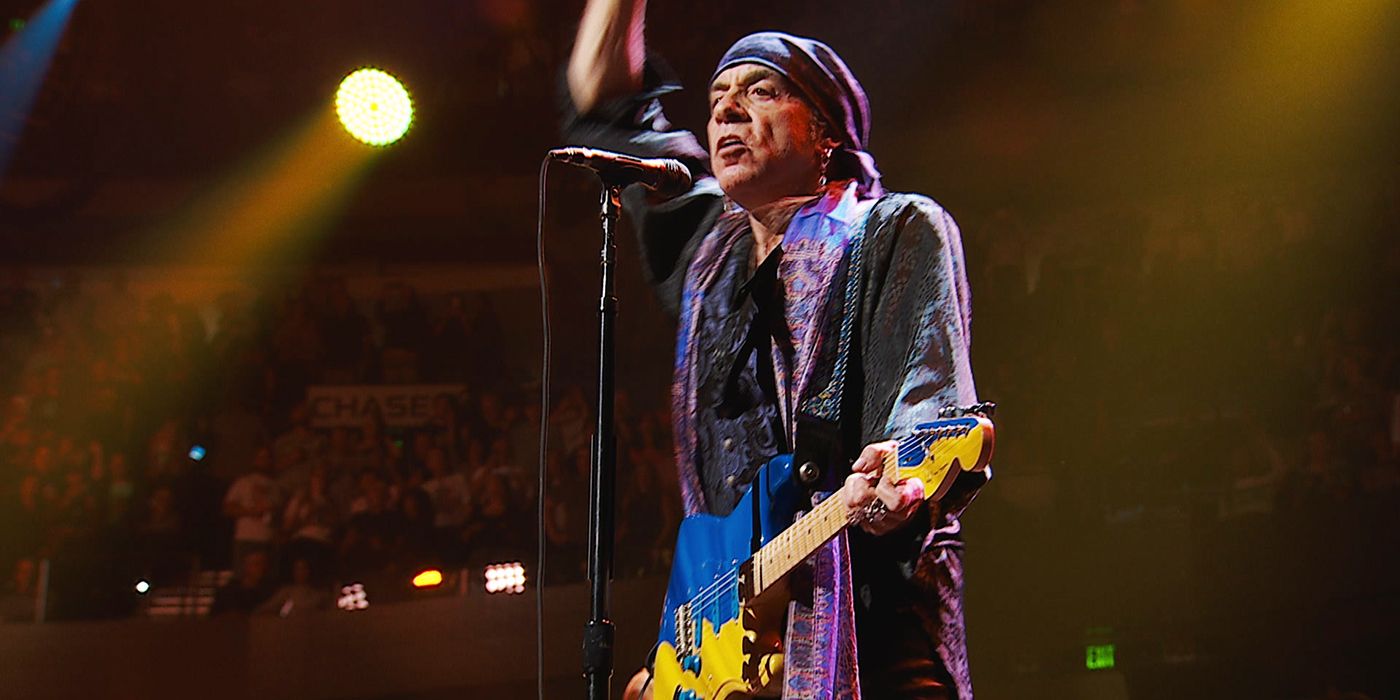
Image via Hulu
Explaining that history in that way has not been done.
The power of putting two songs together and coming up with an emotional arc.
Those were the things that came forward as I started to film.
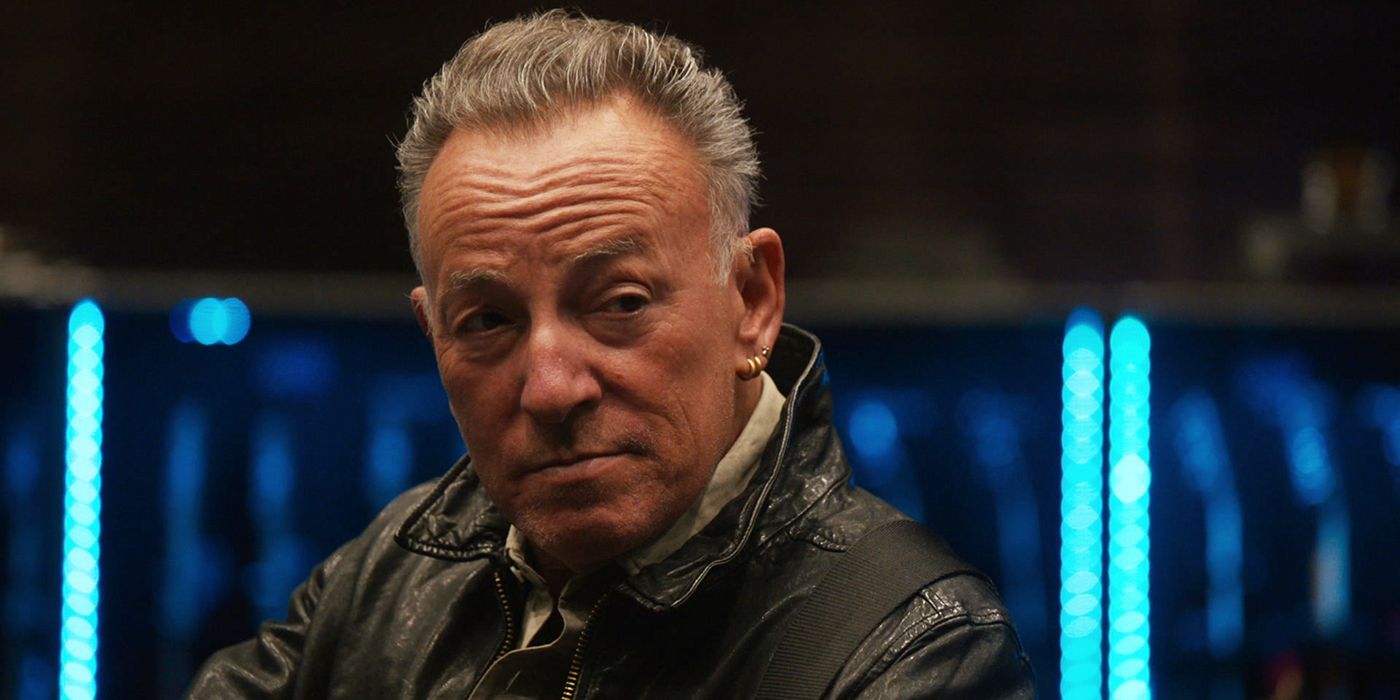
Image via Hulu
There was this opportunity to go for those themes that have not been hit yet on the other docs.
But it was an organic process.
There’s no set POV.
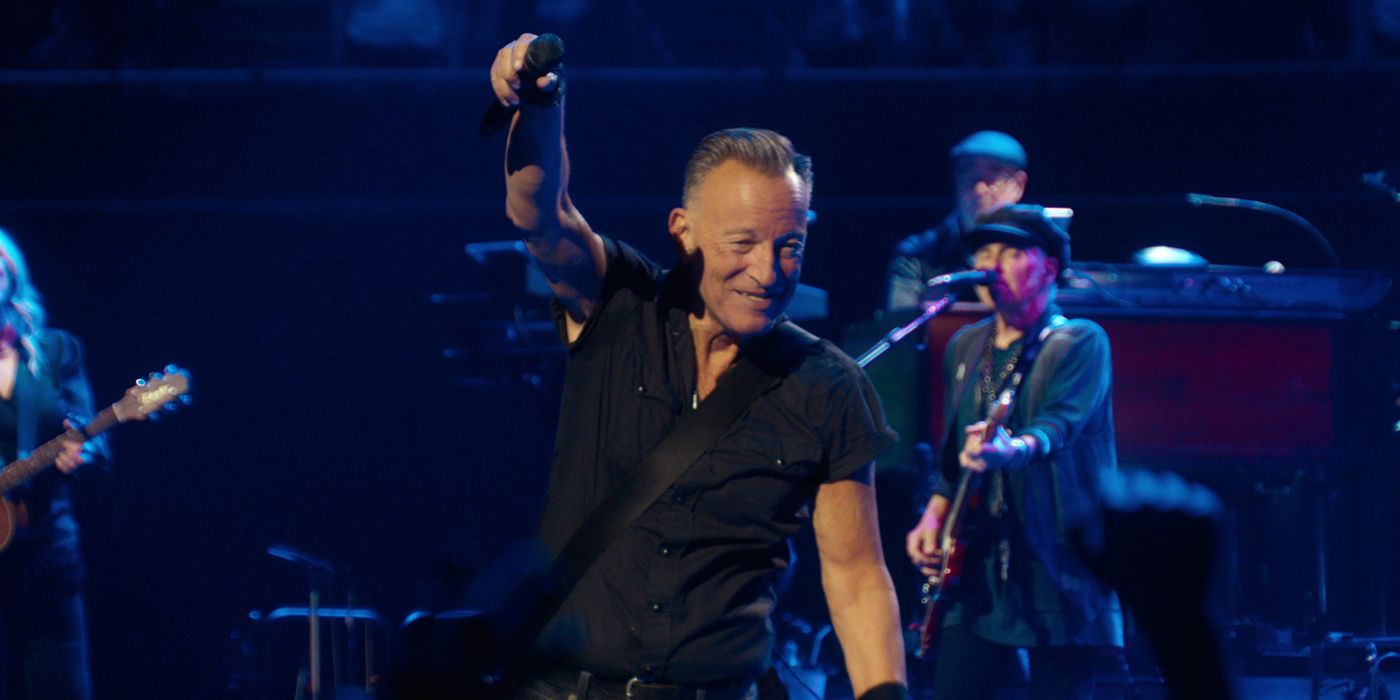
Image via Hulu
I’m just trying to keep up with these guys and film.
Steven, if you’ll indulge me, I would definitely like to talk setlists for a moment.
STEVEN VAN ZANDT: [Laughs] Don’t worry.
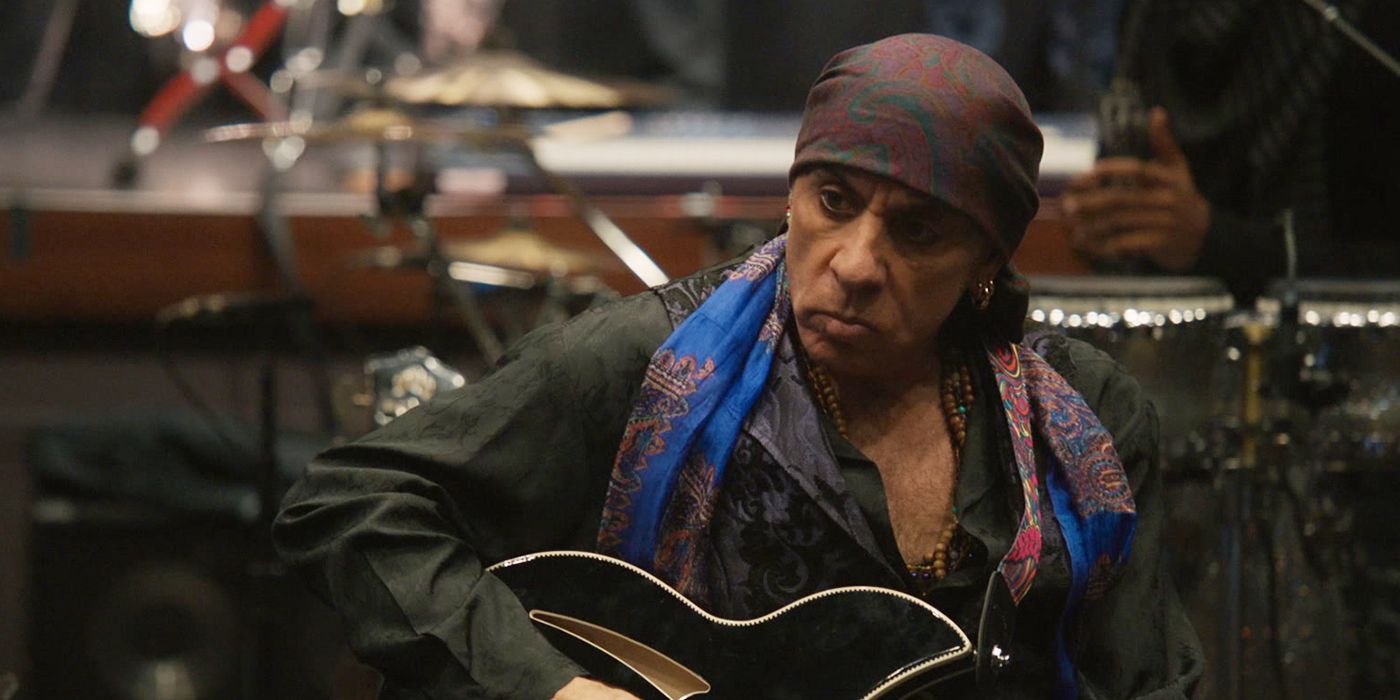
Image via Hulu
We’re going to bring the chaos either way.
That’s all built in.
Only a few bands change songs really, when you think about it.
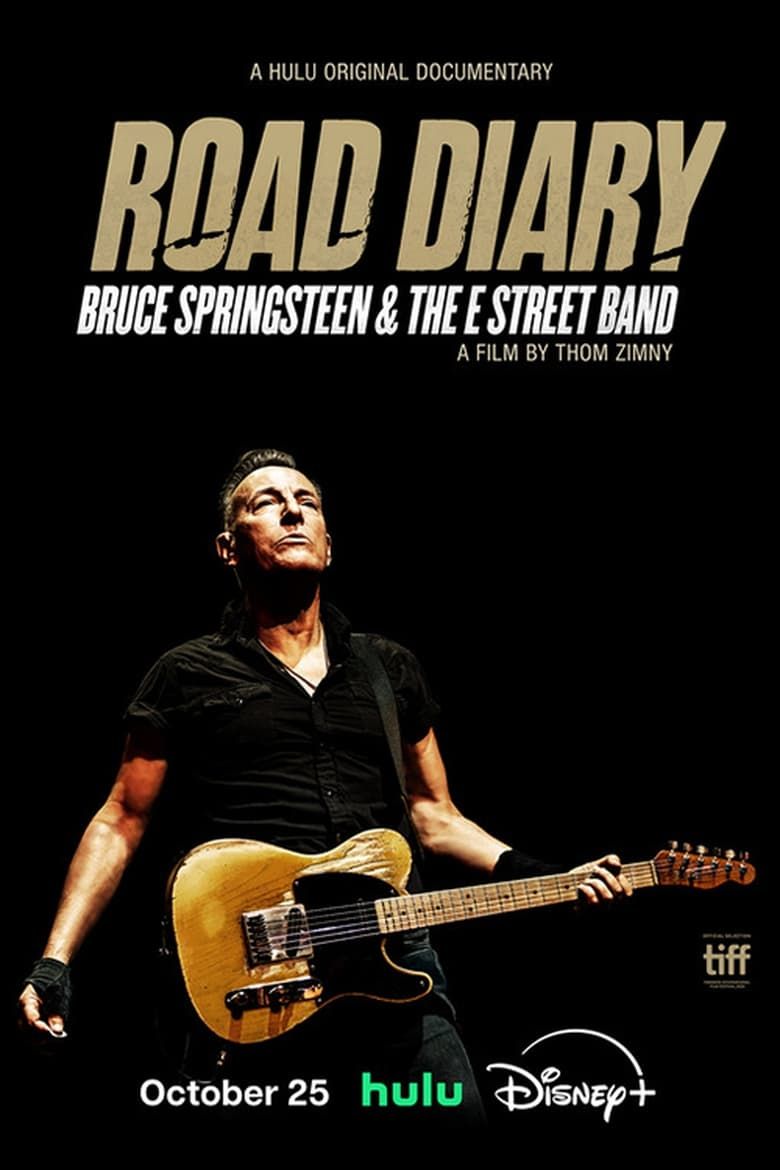
Documentary which chronicles the behind-the-scenes preparation for Springsteen’s band 2023-2024 World Tour.
It’s only the jam bands The Grateful Deads andPhishes and us, you know?
It’s an unusual thing to do what we have done for 40 years.
That’s quite a lot, certainly at least a third.

Maybe it’s not something you do every tour, obviously.
This may never happen again.
But the themes of mortality and vitality that we balanced it out with were present in all the songs.

So, it was just fun to do something different, and it was very, very effective.
Many audience members had the most intense experience with that show.
It was just more focused in that direction.

The writing onLetter to Youis absolutely extraordinary.
And I’m a pretty good songwriter myself, okay?
I know it when I see it.
[Laughs] It is amazingly personal and a whole different way of writing, a different subject matter.
It’s so effective.
And I think that also was part of the intensity of the show.
I loved it, but I love it both ways.
Do you just start rehearsing different things at sound check?
Or does Bruce come in with ideas?
There’s no set pattern to it.
It’s just a matter of what Bruce is feeling like that night.
All right, one final setlist question before we move on.
VAN ZANDT: How much time have you got?
Oh, lord, where do we begin with this?
“Spanish Eyes.”
People should have careers with his outtakes!
I’m surprised they’re not covered more often, to be honest.
We may have done it once live.
ZIMNY: Once in Barcelona, yeah.
VAN ZANDT: It ended up not being part of the show.
That’s the latest one that I’d like to see us doing.
But, look, it’s a wonderful problem to have too many great songs.
A lot of people are crying, and some people look like they’re just having an epiphany.
It’s a stripped down stage.
There are no special effects.
There’s a beauty and an energy that reads to me as pure.
To me, that’s the power of music and rock ‘n’ roll.
I hunt out those moments.
You want to have that translate in a movie.
So those faces were part of what I was witnessing that transformation.
Or was it more like, “Hey, it’s about time!”
What was the thought process when that finally happened?
VAN ZANDT: That’s been our routine forever, really.
We made a bit of a joke that he sort of made it official on this tour.
Ah, so it was more just about the title, then!
Who the hell is this guy?"
[Laughs] So Bruce felt we better make it official just for the new people.
But nothing really has changed.
Bruce wants to concentrate on the bigger picture.
We think the same way, pretty much.
He’s going to make a change here and there.
The music, of course, has to be right.
It seems easy, and we make it look easy.
We’ve been doing it a long time.
But that doesn’t change the fact that every tour is a new tour.
Every record is a new record, and it’s a new experience.
Are you ready to go out there and spill your guts for three hours again?
Are you ready to go through that again?
Because it’s an intense experience for all of us, but mostly for Bruce.
So, he doesn’t want to have to worry about the details of how he’s doing that.
That’s going to be taken care of by me and the rest of the band.
The rest of the band are extraordinary in and of themselves.
They’re so good.
He wants to focus on the bigger picture, and rightfully so.
Steven, do you feel that same way?
Or do you think Bruce or the band overall sort of feels that same way?
VAN ZANDT: Yes.
Every tour could be the last.
We’ve lost two of our brothers already, and a little bit of you goes with them.
So we make the most of it.
check that every moment counts.
But that’s how we all should live our lives, right?
It’s not just rock ‘n’ roll bands.
Let’s live in the moment, man.
That’s what life’s all about.
So, yeah, we feel the same way.
Thom, I’m curious how Bruce’s narration that appears throughout the documentary came together.
Is that something that he writes early in the process?
Or does it come later during the assembly of the film when a cut is being put together?
How does that work?
ZIMNY: Bruce’s narration is developed in the process of the cutting.
So I will send him visual visual references at times.
He will send me some writing that takes it to a whole other level.
And then I start all over again and recut the whole thing, and then a score comes in.
But I’m sending him a sketch of what I’m hoping it could be.
And then you’re in this wonderful place of how do you represent this idea?
[With]Road Diary, I stayed close to what I was witnessing and feeling from the music.
No one’s ever seen this before.
“Road Diarygave me a chance to share some of that.
Especially withthe subtleties of the E Street Band and Stevie and Bruce interacting and working.
And what do we need to do to double-check those embers keep on burning?
VAN ZANDT: [Laughs] Oh, man.
Look, we’re the luckiest guys of the luckiest generation ever.
Or you were in a band.
That’s all you did.
That’s changed, obviously.
The culture has changed.
We have a whole range of distractions now for this generation.
Luckily,rock ‘n’ roll is still the biggest thing live.
The infrastructure no longer exists.
So, it’s difficult to say where things are going.
you’ve got the option to hear it every day on my radio online grid.
you’re able to go back toLittle RichardandChuck BerryandElvis Presleybreaking through.
But that was a blip on the radar screen of history.
Maybe that’s where we belong, you know?
We’re an art form born of rebellion and liberation.
Maybe that’s where it belongs.
Because the corporatization of our world now doesn’t allow for that.
That’s not how things get invented or appreciated or supported, and certainly not how they develop.
Because greatness needs to develop.
It’s not born.
It’s a real problem.
That’s the challenge, I think, for the future.